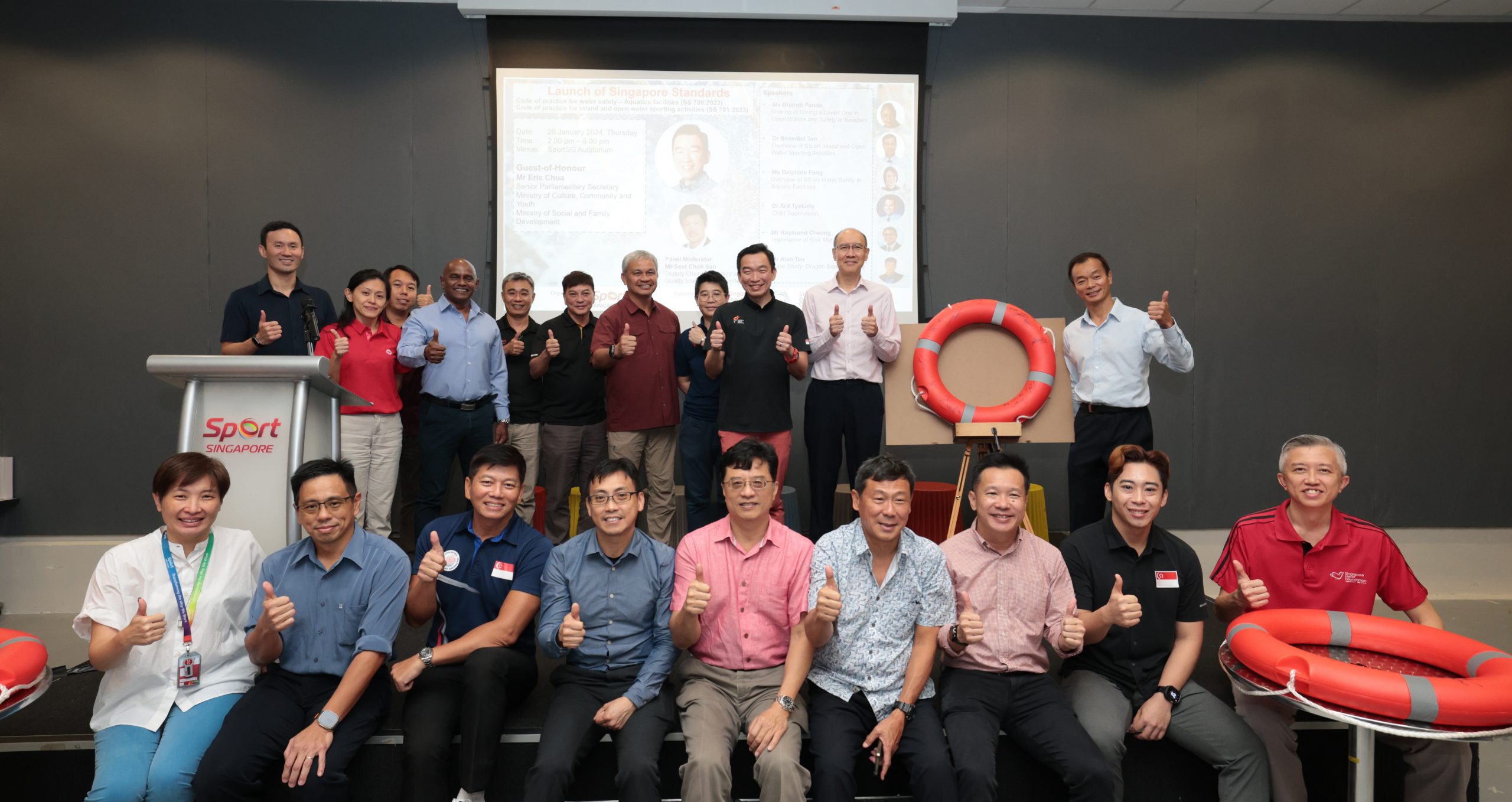SINGAPORE — With the rising popularity of aquatic sports in Singapore, a new Singapore Standards have been rolled out to provide more robust guidelines for safer aquatic sporting environments. The new guidelines were announced by Sport Singapore (SportSg) and the Singapore Standards Council (SSC) which is overseen by Enterprise Singapore (EnterpriseSG) on Thursday, Jan 25.
Two new guidelines were launched, under the Singapore Standards, the 700:2023 Code of Practice for Water Safety – Aquatic Facilities and SS 701:2023 Code of Practice for Inland and Open Water Sporting Activities. Lending his support to the initiative is Eric Chua, Senior Parliamentary Secretary for Ministry of Culture, Community and Youth & Ministry of Social and Family Development.
During his speech at the event held at the Sport Singapore Auditorium, SPS Eric shared that everyone in the aquatic community has a part to play in raising water safety awareness.
“Water safety is a shared responsibility. Everyone – not just organisations involved in aquatic sports and fitness, or those managing aquatic facilities – has a part to play. It is imperative that members of the community are also aware of good water safety habits and practise these habits to keep themselves and their loved ones safe,” said SPS Eric.
SPS Eric’s sentiment was echoed by Choy Sauw Kook, Director-General (Quality and Excellence), Enterprise Singapore, who expressed, “The safety of our athletes and members of the public is of paramount importance. The launch of SS 700: 2023 and SS 701:2023 reiterate our continued commitment to work with key stakeholders and experts, allowing us to identify best practices and develop this series of water sports safety standards. We encourage all aquatics facilities as well as sport activity organisers and participants to adopt these standards and create a safe aquatics environment for all.”
SPS Eric also added that with the relevant support and knowledge, every participant regardless of whether they are a seasoned athlete or a novice, they should feel confident and safe when pursuing their passion in aquatic sports.
“I am heartened by various efforts being undertaken to improve water safety. For instance, to raise awareness on shallow water blackout, a Water Surveillance Guide and relevant articles were disseminated at all public pools and to swim coaches, referencing overseas research and discussions. These were efforts to educate swimmers on the dangers of repetitive prolonged breath-holding, especially if intentional or unintentional hyperventilation has occurred, leading to a shallow water blackout,” mentioned the Senior Parliamentary Secretary.
The newly launched Singapore Standards were developed by Working Groups comprising of representatives from the public and private sectors, and through public consultation to gather feedback from the industry. The Singapore Standards Council appointed the Working Groups and advised them on the guidelines so as to ensure that the recommendations were not only tailored to effectively address the risks associated with sporting activities at aquatic facilities but also on inland and open waters too. Organisations vested in aquatic sports and fitness, and those managing aquatic facilities, are encouraged to adopt the new guidelines to support and enhance aquatic sport safety standards.
“We see a growing demand for aquatic sports among Singaporeans, hence it is imperative to uphold stringent levels of safety. Our new COPs are designed to help improve our understanding of water safety while engaging in aquatic sports,” said Tan Hock Leong, Chief of ActiveSG, Sport Singapore during the launch of the new aquatic code of practice.
Tan added that whether they are an event organiser, a coach of a school or a club, the Code of Practice for Water Safety will allow them to effectively evaluate the known risks of aquatic sporting activities and helps to mitigate it. He also hopes that with the necessary safe practices in place, it will provide ease of mind and encourage more to participate in aquatic sports.

